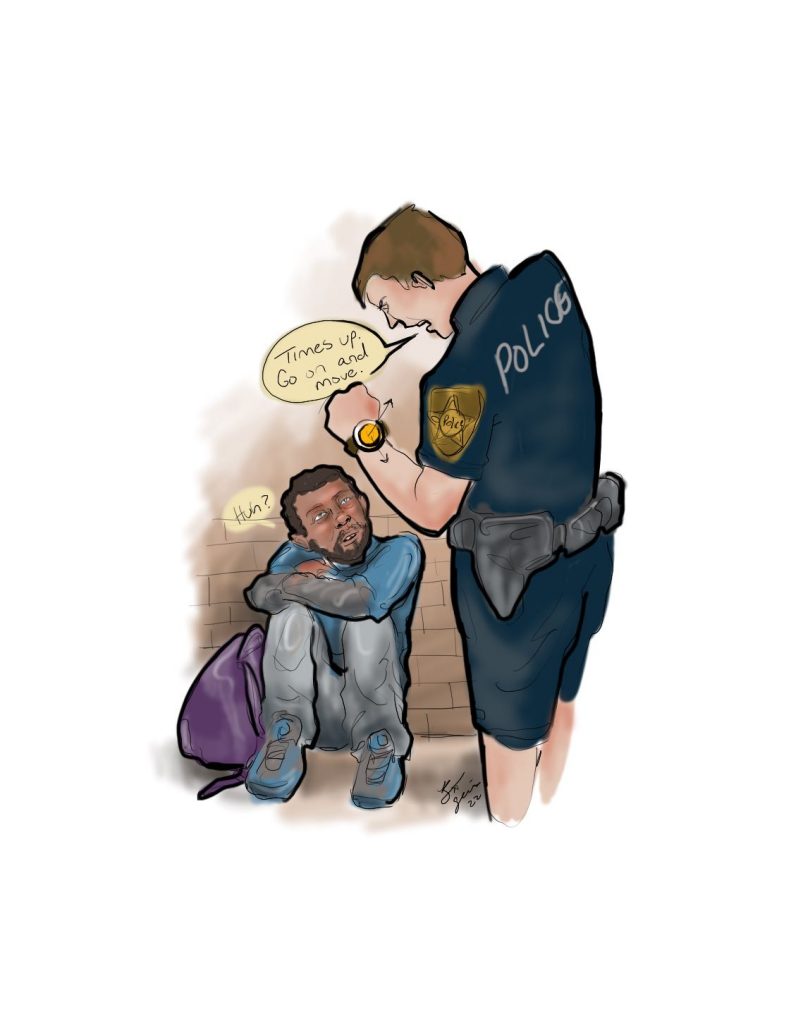If you listen to Berkeley City Council meetings, keep up with city budgets, or spend time out on the streets, you start to notice a pattern. The City Manager’s office has inserted itself into the policing of poverty. The Berkeley police were already busy with this, but it goes beyond the police. In the last year, our team has been showing up to evictions of unhoused communities, conducted by the Homeless Response Team (HRT) which was officially formed in June 2021 under the guidance of the City Manager’s office.The HRT, funded by Measure P, is currently overseen by Peter Radu—Berkeley’s Assistant to the City Manager, whose focus is on Berkeley’s encampment response team, code enforcement, special events, and animal care services. Do Oaklanders recognize the name? Radu recently worked as the Homeless Policy Director for the City of Oakland, where he helped pass the Encampment Management Policy in October 2020. This new policy upends the lives of unsheltered Oakland residents by making nearly every section of the city illegal camping zones.

Radu and other city staff will tell you they are not evicting unhoused people. They will tell you it is street sweeping, tree trimming, that the sidewalks need power washing, or there is a rat infestation, or that the conditions folks are living in are unsafe (“public health and safety” is so often a justification for cruelty). Inevitably, they will tell you they are simply enforcing the law. The City Manager’s office has taken on the enforcement of these unjust laws, working closely with police, to make Berkeley’s streets so inhospitable that, what? Homelessness will disappear? You cannot disappear people.
From observing eviction after eviction, it becomes painfully clear, the cruelty is in the details. The HRT does not come when they say they will. They sometimes come in the wee hours of the morning, as early as 6:00 a.m. One police officer will talk to a resident while behind their back city staff take belongings. Going to the bathroom? You might not have bedding when you get back. In what felt like a particularly cruel incident, we observed city staff tell a resident to separate out what they wanted to keep from what they wanted thrown away, and after the individual carefully sorted out their essential belongings from what they could part with, Public Works returned with the dumpster and trashed everything. Promises are broken, people feel manipulated and lied to. Each time, city outreach staff make their own job harder by breaking any trust they could build with people experiencing houselessness. Everyone wants clean streets, unhoused residents and housed residents alike. But do we really have to forgo our humanity to achieve it?
When the HRT leaves, the sidewalks are power washed, the shiny cars have spaces to park, the visible signs of poverty are gone. Around the corner the displaced party gathers themselves, belongings on a cart. They are left to recover from the traumatizing experience of eviction and the dehumanizing treatment by the HRT. A week later, people are back. Why are people back on the streets? Why didn’t cleaning the sidewalk fix things?
There aren’t enough shelter beds. There is not enough affordable housing. People don’t have enough support with their paperwork, the bureaucracy, or stomaching the mistreatment. People are back because they are not able to find an alternative. All the HRT has achieved is upending the lives of Berkeley residents by trashing their tents, their clothes, their food. All that has been achieved is displacing people from their support networks, isolating them to areas where they face more violence, where they face it alone.
We as a community need more than just less police violence. We need compassionate alternatives that serve all our community members. What would it look like to have consistent garbage pickup for unhoused communities? No police, no manipulating people to give up items, just dumpster bins. Why do we not have more public restrooms and showers? What would it mean to allow sanctioned encampments until we have enough shelter beds or long-term affordable housing for all our city’s residents?
At a minimum, the team tasked specifically to serve our unhoused community should not take on municipal code enforcement. The HRT should be seen not just during the weeks prior to an eviction, representing an omen of pending displacement. If there is a team of outreach workers allocated for people experiencing houselessness, they should build caring relationships with their unhoused clients. They should be the unhoused population’s primary advocate against unjust laws and for substantive services. They should bring care, not cops.
Get active. Be aware. Refuse to be abused.
Berkeley Copwatch is an all-volunteer organization with the goal to reduce police violence through direct observation and holding police accountable for their actions. Formed in 1990, they seek to educate the public about their rights, police conduct in the Berkeley community and issues related to the role of police in our society at large. For more information visit www.berkeleycopwatch.org.
